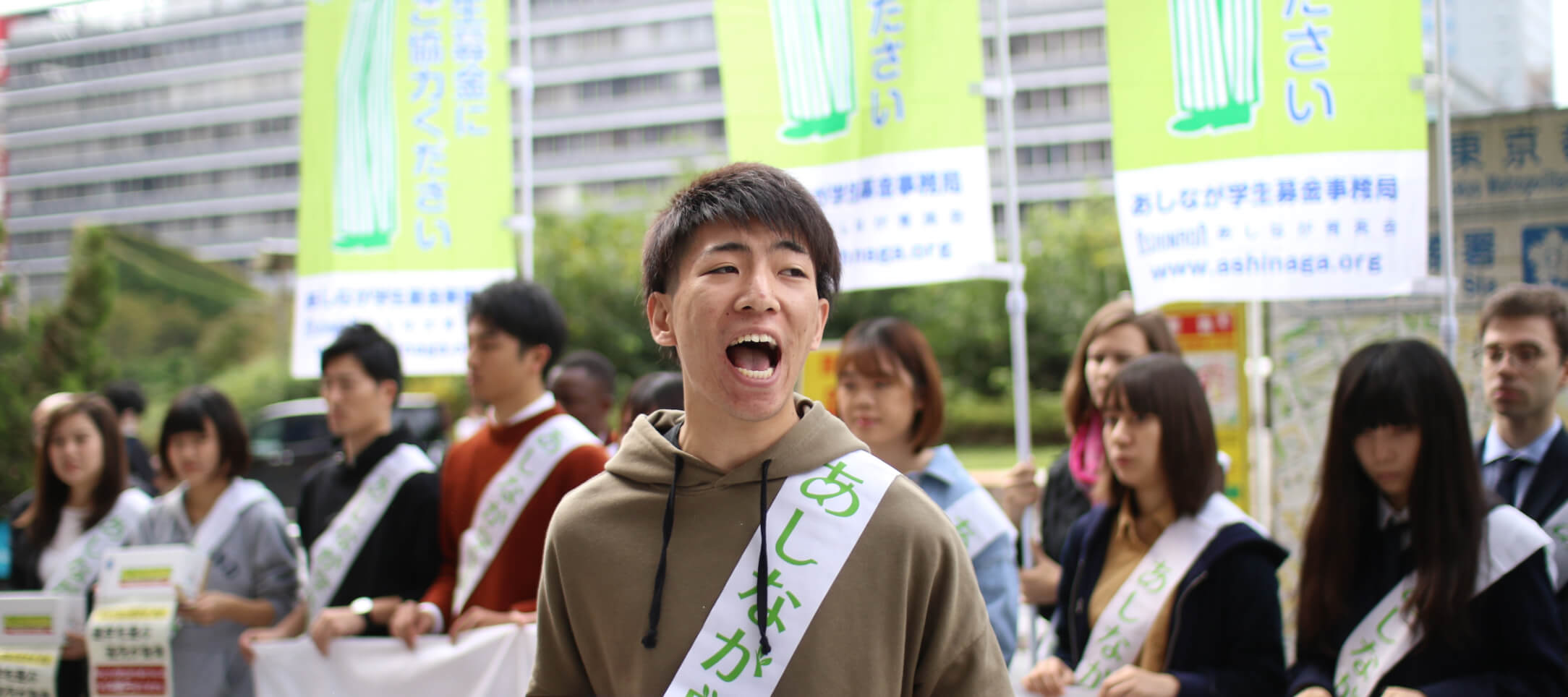RESEARCH & ADVOCACY

A key part of Ashinaga’s work is understanding the academic and financial challenges orphaned students face. Our research then becomes the basis for the support we provide as well as what we campaign for.
Ashinaga’s research and activism was key in the formation of Japan’s 2014 Childhood Poverty Act, which looks to increase government support for children and guardians in one-parent households. Although our research has primarily focused on Japan, we hope to expand to Sub-Saharan Africa as our activities develop in the region. We also aim to widen the remit of our research to include data about the difficulties faced by elementary and middle school children. The primary findings of our research thus far are summarized below.
FINDINGS
Ashinaga high school students have trouble pursuing their desired careers after graduating. Due to financial constraints and family obligations, they feel that they have no choice but to give up higher education and support their families.
Within the group of students, data was collected from, the percentage enrolling in university or junior college was lower than the national average.
Though public high school is said to be free and there is a reduced school fee system in most private high schools, educational expenses are high (clubs, uniforms, extracurricular activities, etc.). It should be noted that in Japan, education is only compulsory through junior high school.
“No matter how hard I work, my hourly wage remains ¥730. If I continue to work like this, I wonder whether I will end up homeless.” (44-year-old from Hokkaido)
“I’m not entitled to receive the survivor pension with my current wage. I feel sad about the fact that my income is lower than families on welfare, no matter how hard I work. I changed to a night-shift job because the income is better, but I still have almost no money left when my next payday comes. I am not a full-time employee, so I don’t receive bonuses. I feel very anxious about my situation, but there is nothing I can do about it.” (49-year-old from Kagoshima)
Numbers
- 33% of those who responded to this survey indicated that their circumstances surrounding education had led to “changes in career path
- 19% of respondents “gave up high education” to subsidize their household
- Two-thirds of respondents felt they had a “shortage of education” This number increases to more than 70% for families with two or more children
- 48% are “reducing all expenses other than educational expenses
- 41% are “cutting into deposits and savings” to pay for education
- 25% depend on their children’s part-time jobs. This number jumped to 35% for those living in the greater Tokyo area
Depression
Results show that in children:
– 29% “refused to or were unwilling to go to school”
– 28% showed “an increase in depressed facial expressions”
– 24% “met with a counselor or psychiatrist”
– 23% “became mad easily”
– 20% “became lethargic”
– 12% “were bullied”
Results show that in children:
– 42% are “depressed, and not feeling better”
– 41% “always having a feeling of crushing uncertainty”
– 25% showing “nervousness”
– 19% found they were “taking great pains to do anything”
– 17% had “feelings of unworthiness”
– 16% of “hopelessness”
– 15% exhibited “fidgeting and restlessness”
– 10% were “considering suicide or double suicide”’
Depression can be debilitating and should be treated as seriously as a physical illness. Having an open space to talk about your feelings and what you are struggling with is crucial to taking care of your mental health.
Losing One or Both Parents
When a parent dies, the child loses not only their financial support but their sense of emotional security. Sudden death by disaster or suicide is even more shocking. Children whose parents are fighting long-term illnesses, such as cancer, may experience the fear of death. Some adults try to protect their children by not telling them they are ill. This results in death being sudden and even more.
There were approximately 20,000 deaths by suicide in Japan during 2019. Young people who are told by their family and relatives to remain silent regarding their parent’s suicide are often pushed into isolation.